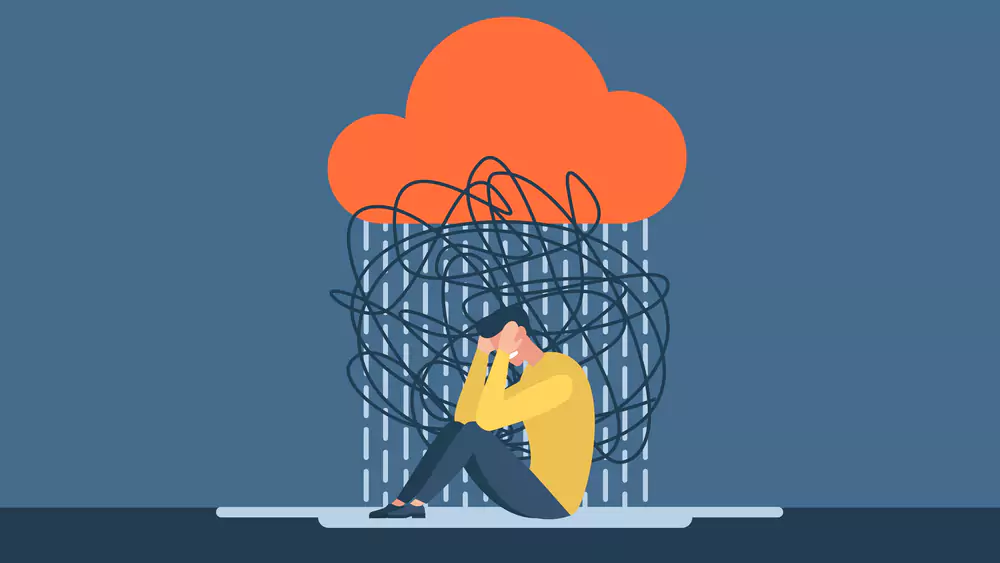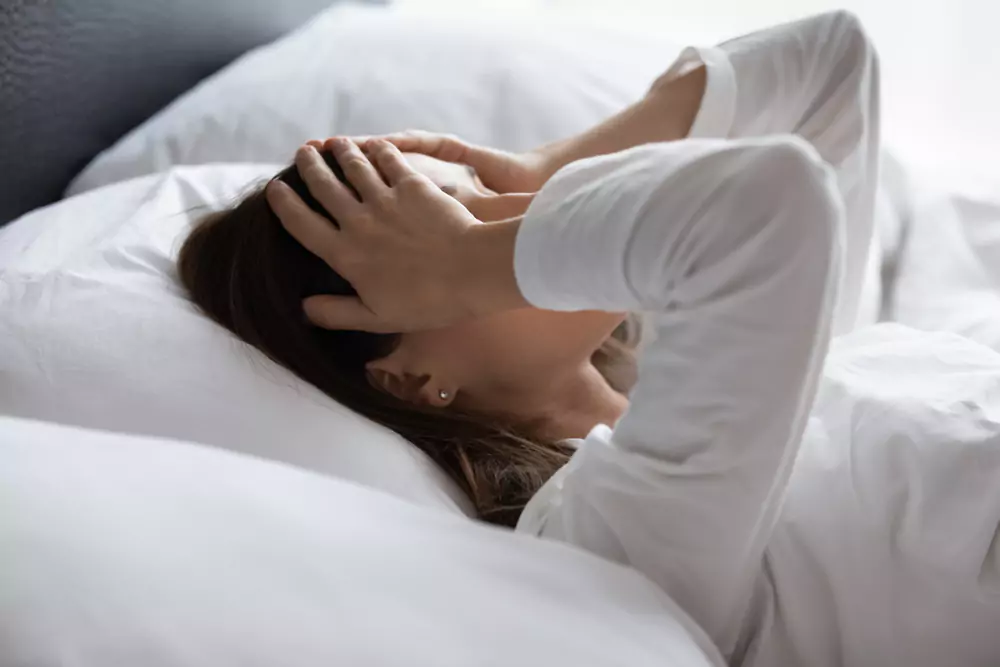
Anxiety is a normal and healthy emotion that everyone experiences occasionally. However, for some people, anxiety can become so intense and overwhelming that it interferes with their daily functioning and quality of life.
Can you be hospitalized for severe anxiety? While most anxiety can be managed at home or through outpatient treatment, in some severe cases, hospitalization may be necessary.
What is severe anxiety?
Severe anxiety is a term that can describe different levels of intensity and duration of anxiety symptoms. Anxiety is a normal and healthy emotion that everyone experiences occasionally, especially when facing stressful or challenging situations. However, when anxiety is severe, it can interfere with your daily functioning and quality of life.
Symptoms of severe anxiety

Severe anxiety can cause physical, emotional, and behavioral symptoms that are difficult to cope with. Some of these symptoms include:
Physical symptoms
- Rapid heartbeat and palpitations
- Shortness of breath or difficulty breathing
- Chest pain or tightness
- Sweating
- Trembling or shaking
- Gastrointestinal distress (such as stomachaches or nausea)
- Dizziness or lightheadedness
Emotional and cognitive symptoms
- Intense fear or dread
- Persistent worry or excessive rumination
- Feeling restless or on edge
- Difficulty concentrating or focusing
- Irritability or anger
- Sleep disturbances, such as insomnia or nightmares
Also read about: Are Yoga Mats Made Of Latex?
Behavioral symptoms
- Avoidance of situations or places that trigger anxiety
- Social withdrawal or isolation
- Compulsive behaviors or rituals to reduce anxiety
- Difficulty making decisions or taking action
How severe anxiety can hurt you?

Anxiety can have significant negative impacts on health and well-being if left untreated. Some of the ways severe anxiety can hurt you are:
Physical health effects
Anxiety can cause various physical symptoms like chest pain, fatigue, headaches, stomach issues, muscle tension, sweating, and trouble sleeping. Over time, chronic anxiety can contribute to high blood pressure, heart disease, and weakened immune systems.
Mental health effects
Severe anxiety can worsen depression, increase the risk of substance abuse, and trigger panic attacks. It can also impact cognitive functions like concentration, memory, and decision-making.
Social isolation
Anxiety often causes people to withdraw socially and avoid activities they once enjoyed. This social isolation can further exacerbate anxiety symptoms.
Impact on work and relationships
Anxiety can negatively impact job performance and productivity. It can also strain personal relationships as anxiety symptoms like irritability and avoidance behaviors affect close bonds.
Decreased quality of life
The constant worry, rumination, and physical symptoms of severe anxiety can significantly decrease an individual’s enjoyment of life and sense of well-being.
Suicidal thoughts
In extreme cases, individuals with severe, untreated anxiety may begin to experience suicidal thoughts as anxiety becomes all-consuming and impossible to cope with.
Can you be hospitalized for severe anxiety?

Severe anxiety can become so overwhelming that hospitalization is needed in some cases. However, hospitalization is generally seen as a last resort for anxiety treatment. Here are some key points on when someone with anxiety may need to be hospitalized:
- If their anxiety is so severe, they are an active danger to themselves or others. This could include suicidal thoughts/plans, self-harming behaviors, or losing control and lashing out violently due to anxiety. Safety is the top priority.
- Suppose their anxiety is causing such extreme functional impairment that they cannot care for themselves. This could mean being unable to eat, drink, sleep, or maintain proper hygiene due to anxiety symptoms. Hospitalization may be needed to stabilize and monitor their basic needs.
- Suppose their anxiety is causing psychosis, delusions, or a complete disconnect from reality. This level of severe anxiety requires intensive inpatient treatment and supervision.
- If they have an underlying medical issue that is exacerbating anxiety symptoms, medications/treatments are needed to regulate the medical condition before further anxiety treatment can be truly effective.
The goal of any hospitalization for anxiety is short-term stabilization so that longer-term outpatient care can continue. Anxiety treatment is complex, and being hospitalized can feel scary or embarrassing for some.
Treatment of severe anxiety

Here are some key points about the treatment of severe anxiety:
- Psychotherapy is often considered the first-line treatment approach. Cognitive behavioral therapy (CBT) and exposure therapy are research-backed therapies that help patients learn coping strategies for anxiety symptoms.
- Medications may be used alongside psychotherapy for more severe anxiety. Commonly prescribed medications include SSRIs like Zoloft, SNRIs like Effexor, benzodiazepines like Xanax, and beta blockers like propranolol.
- Complementary approaches like mindfulness, meditation, yoga, and deep breathing exercises may also help manage anxiety. Relaxation techniques are often incorporated into psychotherapy.
- For very severe anxiety disorders, intensive treatment programs may be considered. These include partial hospitalization (going home at night) or full residential hospitalization.
- Hospitalization in an inpatient psychiatric unit may be required in extreme cases where the anxiety presents safety risks, psychosis, or an inability to care for oneself. This aims to stabilize acute symptoms.
- Support groups can provide ongoing assistance for managing anxiety. Peer support helps reduce isolation and provide accountability. Groups like the Anxiety and Depression Association of America (ADAA) have many resources.
- Lifestyle changes to improve sleep, nutrition, exercise, and stress reduction are also important in managing long-term anxiety. Making sustainable changes improves overall well-being.
- Involving family and friends as a support system can also help cope with severe anxiety and make treatment gains stick.
The key is finding a comprehensive treatment approach tailored to the individual’s symptoms and situation. A combination of therapy, medication, lifestyle changes, and a support system is often the most effective.
Also read about: Do I Have Driving Anxiety?
FAQs
Conclusion
In conclusion, while it may not be common, being hospitalized for severe anxiety is possible. Severe anxiety can interfere with a person’s ability to function in daily life and may require intensive treatment and support.
Hospitalization can provide access to various treatment options, including medication management, psychotherapy, and supportive care. It is important to seek help if you or someone you know is experiencing severe anxiety, as early intervention can lead to better outcomes. It is possible to manage and overcome severe anxiety with appropriate treatment and support.

